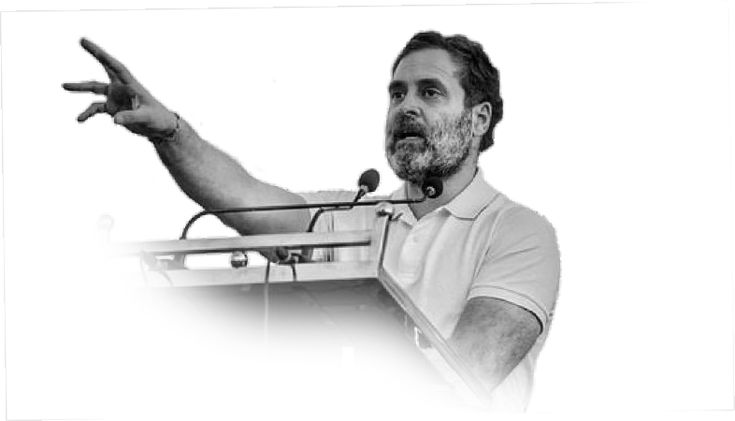Introduction
Rahul Gandhi is a name that resonates widely in the realm of Indian politics. As a scion of the Nehru-Gandhi family, his journey has been closely watched, critiqued, and debated. This article aims to provide a detailed overview of his life, career, and impact, offering a comprehensive guide for anyone looking to understand his role in the Indian political landscape.
1. Early Life and Background
Born on June 19, 1970, in New Delhi, Rahul Gandhi is the son of Rajiv Gandhi, a former Prime Minister of India, and Sonia Gandhi, the former President of the Indian National Congress (INC). He is the grandson of Indira Gandhi and the great-grandson of Jawaharlal Nehru, both of whom served as Prime Ministers of India.
Rahul Gandhi’s early education took place at the Doon School in Dehradun, followed by his schooling at St. Stephen’s College, Delhi, and Harvard University. He completed his undergraduate degree from Rollins College, Florida, and later obtained an M.Phil. in Development Studies from Trinity College, Cambridge.
His early life was marked by the assassination of his grandmother Indira Gandhi in 1984 and his father Rajiv Gandhi in 1991, events that significantly influenced his perspectives and future choices.
2. Political Legacy of the Nehru-Gandhi Family
The Nehru-Gandhi family has been at the forefront of Indian politics since independence. Jawaharlal Nehru, India’s first Prime Minister, laid the foundation for modern India’s democratic and secular values. Indira Gandhi, Nehru’s daughter, furthered these values and steered India through significant socio-political changes.
Rajiv Gandhi, Rahul’s father, brought technological and economic reforms during his tenure as Prime Minister. This legacy bestowed upon Rahul Gandhi a mix of great expectations and substantial responsibilities.
3. Entry into Politics
Rahul Gandhi formally entered politics in 2004 when he contested the Lok Sabha elections from Amethi, a constituency that had been represented by his family members for decades. He won with a significant margin, marking the beginning of his political career.
In 2007, he was appointed the General Secretary of the Indian National Congress, and later the Vice President in 2013. His early political career involved rejuvenating the Youth Congress and the National Students Union of India (NSUI), aiming to bring young blood into the party.
4. Leadership in the Indian National Congress
Rahul Gandhi’s leadership within the INC has been both challenging and transformative. As Vice President and later President of the Congress, he has been at the forefront of various campaigns and initiatives.
His leadership has focused on addressing internal party reforms, promoting grassroots activism, and emphasizing social justice. Despite facing significant electoral setbacks, such as the 2014 and 2019 general elections, his leadership has brought a renewed focus on building a robust organizational structure and advocating for inclusive growth.
5. Major Political Campaigns
Rahul Gandhi has led several significant political campaigns. Notable among them are the 2014 and 2019 Lok Sabha election campaigns, where he spearheaded the Congress’s efforts against the Bharatiya Janata Party (BJP).
His campaigns have often centered around issues like employment, agrarian distress, corruption, and social justice. Despite mixed results, these campaigns have shaped public discourse and highlighted critical issues affecting Indian society.
6. Parliamentary Career
Rahul Gandhi has served as a Member of Parliament (MP) from Amethi and later from Wayanad, Kerala. In Parliament, he has been vocal on various issues, including farmer rights, unemployment, economic policies, and social justice.
His speeches and legislative contributions reflect his commitment to addressing the needs of marginalized communities and advocating for a more equitable society. His role in parliamentary committees and active participation in debates underscore his engagement with legislative processes.
7. Advocacy and Key Issues
Throughout his career, Rahul Gandhi has championed several key issues:
a. Economic Reforms:
Advocating for inclusive growth, fair economic policies, and addressing unemployment.
b. Agrarian Distress:
Highlighting the plight of farmers and pushing for policies to support agricultural sustainability.
c. Social Justice:
Promoting equal rights for all, focusing on marginalized communities, and addressing caste-based discrimination.
d. Youth Empowerment:
Encouraging youth participation in politics and governance, emphasizing education and job creation.
His stance on these issues is reflected in his speeches, public statements, and legislative initiatives.
8. Controversies and Criticisms
Rahul Gandhi’s political career has not been without controversies. He has faced criticism for his perceived lack of political acumen, electoral failures, and leadership style. Notable controversies include:
- Allegations of corruption and mismanagement within the Congress party.
- Criticism for the party’s performance in successive general elections.
- Public gaffes and statements that have attracted media scrutiny.
Despite these challenges, he has consistently worked to address criticisms and refocus his efforts on key political and social issues.
9. Public Perception and Media Coverage
Public perception of Rahul Gandhi is polarized. Supporters view him as a sincere, hardworking leader committed to social justice and inclusive growth. Critics, however, often describe him as inexperienced and question his leadership capabilities.
Media coverage has played a significant role in shaping his public image. While some outlets highlight his efforts and achievements, others focus on his failures and controversies. This duality in coverage has significantly impacted his political career.
10. Influence and Legacy
Rahul Gandhi’s influence on Indian politics is substantial, given his role in the Congress party and his advocacy on various social and economic issues. His efforts to revitalize the Congress and promote youth participation in politics are notable contributions.
His legacy will likely be defined by his ability to adapt and respond to the evolving political landscape, his commitment to social justice, and his efforts to uphold the values of the Nehru-Gandhi family.
11. Personal Life
Rahul Gandhi maintains a relatively private personal life. He is known for his interest in sports, particularly cycling and diving, and is an avid reader. His close relationships with his mother Sonia Gandhi and sister Priyanka Gandhi Vadra are well-documented.
His personal experiences, including the tragic assassinations of his grandmother and father, have profoundly influenced his perspectives and commitment to public service.
12. Frequently Asked Questions (FAQs)
Q: What is Rahul Gandhi’s educational background?
A: Rahul Gandhi holds an undergraduate degree from Rollins College, Florida, and an M.Phil. in Development Studies from Trinity College, Cambridge.
Q: What are some key issues Rahul Gandhi advocates for?
A: Rahul Gandhi advocates for economic reforms, agrarian distress, social justice, and youth empowerment.
Q: What are the major controversies associated with Rahul Gandhi?
A: Major controversies include allegations of corruption within the Congress party, criticism for electoral failures, and public gaffes.
Q: What positions has Rahul Gandhi held in the Congress party?
A: Rahul Gandhi has served as General Secretary, Vice President, and President of the Indian National Congress.
Conclusion
Rahul Gandhi’s journey in Indian politics is one of resilience, commitment, and continuous evolution. As he navigates the complex political landscape, his efforts to promote social justice, economic reforms, and inclusive growth remain central to his vision. Whether you admire him or critique him, Rahul Gandhi’s influence on Indian politics is undeniable.
This comprehensive guide provides valuable insights into Rahul Gandhi’s life, career, and impact, offering readers a detailed understanding of his role in shaping contemporary Indian politics. As the political landscape continues to evolve, Rahul Gandhi’s journey and contributions will undoubtedly remain a significant part of India’s political narrative.




